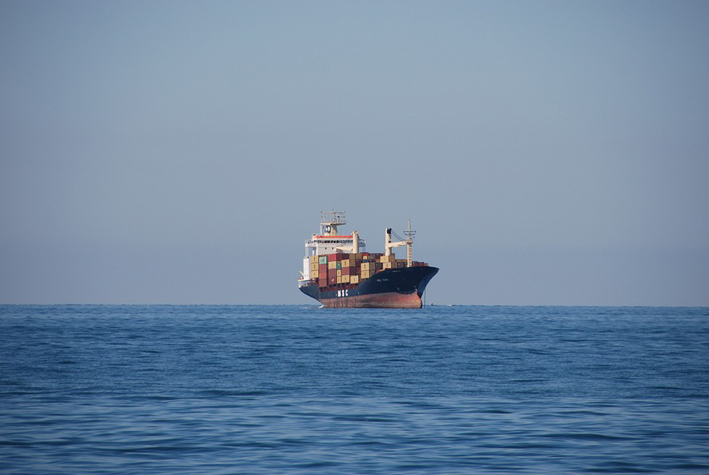Shipping cargo to Pakistan demands strategic planning, and a pivotal aspect is choosing between air and sea freight. This decision hinges on various factors, such as the nature of the cargo, time sensitivity, and budget considerations. In this article, we delve into the critical choice between air and sea transportation, unravelling the pros and cons to assist businesses in making well-informed decisions for their cargo destined for Pakistan.
The dichotomy between air and sea freight for cargo to Pakistan involves carefully balancing speed and cost-effectiveness. Air freight is synonymous with swift deliveries, making it ideal for time-sensitive shipments, while sea freight stands out for its cost-efficiency, particularly for large volumes. Navigating these options requires a comprehensive understanding of the specific needs of your cargo, and in the following discussion, we explore the intricacies of both air and sea transportation to guide you in choosing the optimal mode for your shipments bound for Pakistan.
Regarding international cargo shipping, air freight emerges as the undisputed champion regarding speed and efficiency. If your destination is Pakistan and your cargo demands a swift journey, air transportation is often preferred. Let’s delve deeper into the world of air freight, exploring its advantages, considerations, and nuances that make it a compelling option for certain types of shipments.

Air cargo offers several distinct advantages that make it an attractive option for shipping to Pakistan.
Air freight stands out for its unparalleled speed in transporting cargo. With the ability to cover vast distances in hours, this mode of transportation is ideal for time-sensitive shipments. Businesses requiring swift deliveries can rely on the prompt and efficient air cargo service.
Airlines operate on strict schedules, ensuring high reliability in cargo transportation. This predictability is crucial for businesses with tight deadlines or those dealing with perishable goods. Adherence to schedules minimizes the risk of delays, providing a sense of security for shippers.
Airports implement stringent security measures, reducing the likelihood of theft or damage to cargo during transit. The controlled environment and strict protocols contribute to the safety of shipments. For valuable or sensitive goods, air freight provides an added layer of security that can be vital for the success of the shipping process.
Air freight offers extensive global connectivity, linking major cities and commercial hubs. This extensive network allows businesses to reach markets around the world efficiently. The ability to connect seamlessly with various destinations makes air freight a versatile option for companies engaged in international trade.
While air cargo has its advantages, it also comes with certain following drawbacks:
While air freight excels in speed, it comes at a higher cost than sea transportation. Shippers must carefully weigh the benefits of rapid delivery against the budget constraints of their operations.
Despite their speed, aeroplanes have limited cargo space compared to sea vessels. This makes air freight less suitable for bulky or oversized items, as the cost per unit of volume may become prohibitive.
The aviation industry is a significant contributor to carbon emissions. Businesses with a strong commitment to sustainability may need to consider the environmental impact of air freight and explore ways to offset or mitigate it.
When shipping cargo internationally, sea freight emerges as a compelling option for businesses looking to balance cost-effectiveness with reliability. While not as swift as air transportation, sea freight offers several advantages, especially for large shipments or goods with less stringent time constraints. In this section, we will delve deeper into the nuances of sea freight, exploring its benefits, considerations, and potential challenges.

Sea cargo presents its own set of advantages that may align better with certain shipping requirements.
Sea freight stands out as a cost-effective option for shipping cargo to Pakistan. With lower operational costs and economies of scale, sea transport becomes significantly more economical, especially for businesses dealing with large volumes of goods.
Ships boast expansive cargo capacities, making sea freight an ideal choice for businesses transporting substantial goods. This is particularly advantageous for industries that deal with raw materials, machinery, or other large and heavy items.
The scalability of sea freight contributes to its cost-effectiveness. As the volume of cargo increases, the per-unit cost tends to decrease. This makes sea transport a favourable option for businesses looking to optimize their shipping expenses while maintaining reliability.
Sea freight offers flexibility in terms of shipping options. Full Container Load (FCL) and Less than Container Load (LCL) services cater to varying cargo sizes. This adaptability allows businesses to choose a shipping method that aligns precisely with the volume of goods they need to transport.
For businesses committed to sustainability, sea freight presents a more environmentally friendly option than air transport. Ships generally have a lower carbon footprint per ton of cargo transported, contributing to reduced environmental impact over long distances.
While sea freight offers numerous advantages, it is essential to acknowledge potential challenges and considerations associated with this mode of transportation:
Sea freight is not the fastest option; transit times can be considerably longer than air transportation. Businesses must carefully assess the time-sensitivity of their cargo and be willing to plan for longer lead times when choosing sea freight.
Sea transport is susceptible to weather conditions, occasionally resulting in delays. Additionally, external factors such as geopolitical events, port congestion, or shipping route changes may impact the smooth flow of sea freight operations.
Sea freight involves intricate documentation processes and compliance with customs regulations. Businesses must ensure that all necessary paperwork is done to prevent delays and complications at ports of entry.
The efficiency of sea freight is closely tied to the infrastructure and handling capabilities of ports. Businesses should choose well-established, well-maintained ports to ensure smooth loading and unloading.
The type of goods being shipped plays a crucial role in deciding the mode of transportation. Perishable or high-value items might justify the higher cost of air freight for speed, while bulk shipments of non-perishable goods are often more cost-effective by sea.
Budget considerations are paramount for businesses. While air freight might offer speed, it comes at a higher cost. Businesses need to evaluate their budget constraints and weigh them against the urgency of delivery.
The availability and efficiency of transportation infrastructure can influence the choice between air and sea freight. Consider the accessibility of airports and seaports and the connectivity of transportation networks within Pakistan.
Understanding and navigating customs procedures and regulations is crucial for international shipments. Different modes of transportation may have varying requirements and paperwork, and businesses should factor these into their decision-making process.
There is no one-size-fits-all solution in the debate between air and sea freight to Pakistan. The optimal choice depends on the specific needs and priorities of the shipper. While air freight offers speed and efficiency, sea freight provides a cost-effective solution for bulk shipments. Balancing cost, speed, reliability, environmental impact, and regulatory considerations is essential for making an informed decision. Finding the right balance between these factors will ultimately result in a successful and cost-efficient shipping experience to Pakistan.
